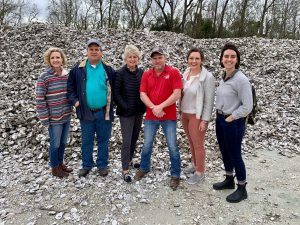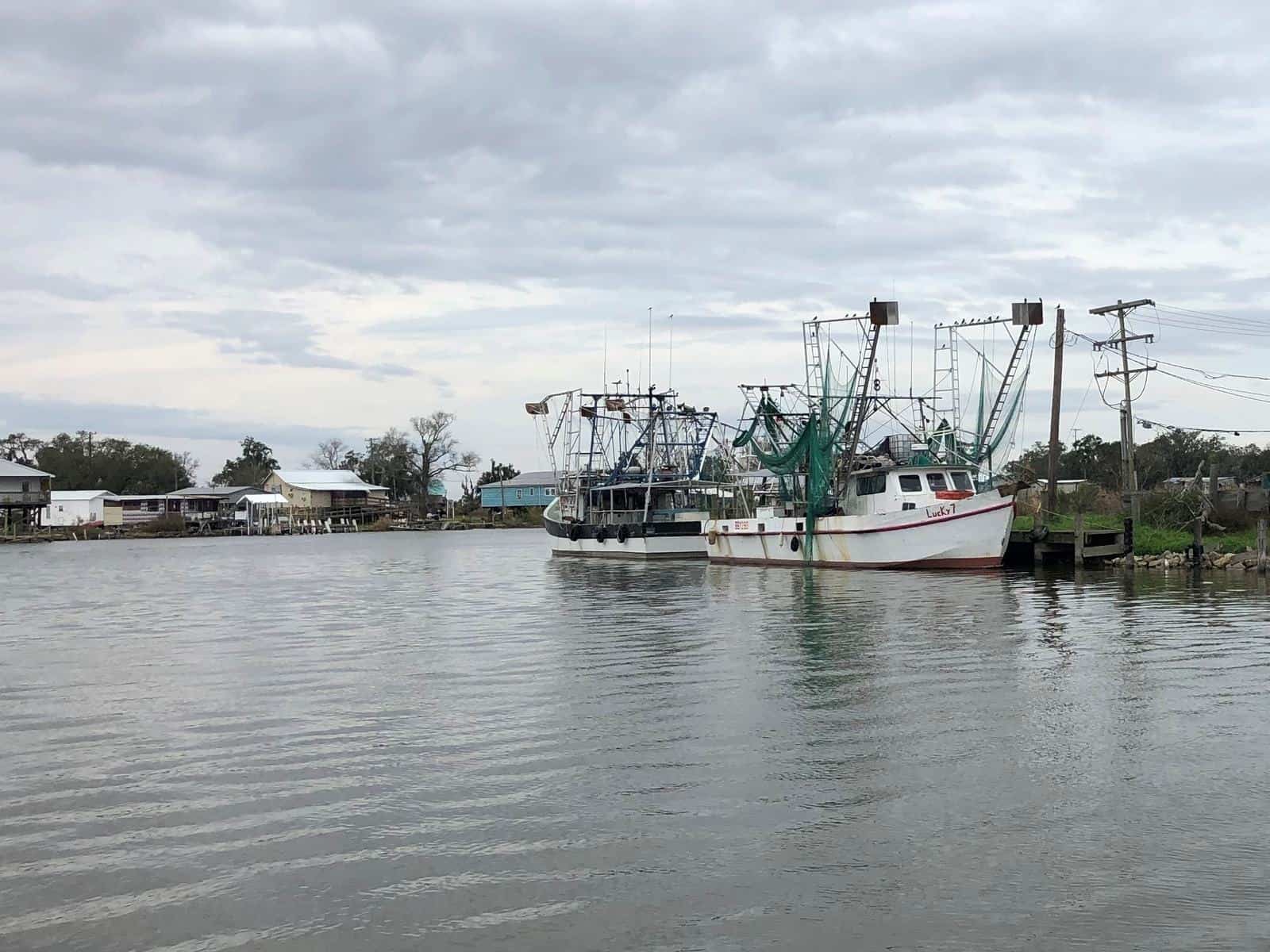Perspectives on Resilience from Louisiana
28 February 2020Stray oyster shells crunch under my feet as I gaze upon a shell mountain twelve feet high. Toby Voison, an oysterman and processor in Houma, Louisiana, explains that these shucked oyster shells will be loaded onto one of his barges and returned to the water bottoms he leases from the state of Louisiana. This process replenishes his oyster reefs with fresh cultch, the material on which oyster spat (larvae) attach and mature.
This is Toby’s investment in a future harvest and his future income. However, his family’s business is threatened by recent declines in oyster productivity all along the Louisiana coast. Oysters are particularly sensitive to water salinity, and more frequent flooding in the Midwest is channeling more freshwater down the Mississippi River—reducing the salinity of Louisiana’s estuaries and stressing oyster beds. Although Toby continues to seed his oyster beds with cultch, an expensive investment, his returns have become increasingly unpredictable, leading him to question the future of his business.
This narrative is becoming all-too-common along Louisiana’s coast. Increasingly challenging environmental conditions and diminishing profit margins are causing some to question the future of Louisiana’s seafood industry entirely. Hardest hit are the remaining crabbers, shrimpers, oystermen, and fin-fishermen who make their living harvesting wild-caught seafood from Louisiana’s productive estuaries.
If environmental planning efforts fail to combat rising seas, increased flooding, and coastal erosion, what will happen to Louisiana’s most threatened communities?
Over the past few months, I’ve spoken to many of these fishermen as my Meridian colleagues and I study Louisiana’s seafood supply chain. In collaboration with the University of Louisiana at Lafayette, we’re investigating ways to catalyze much-needed economic development to help rural, coastal Louisianans thrive.
The importance of economic vitality for community resilience hits close to home. As a native Louisianan, I studied natural resource ecology and management at Louisiana State University and spent a lot of time talking to folks like Toby. During my sophomore year, I collected interviews and portraits of coastal residents in a photography book, Louisiana Gone, that I self-published with two friends to humanize Louisiana’s coastal wetlands loss. I then worked as a research assistant for “Coastal Voices,” a storytelling platform and podcast series that highlights Louisiana communities and their relationship to the land and water. I was trying to understand a question integral to Louisiana’s future: If environmental planning efforts fail to combat rising seas, increased flooding, and coastal erosion, what will happen to Louisiana’s most threatened communities?

These conversations have inspired me to think deeply about how Louisiana’s coastal planning processes can best serve Louisiana’s rural coastal communities. This is what ultimately led me to Meridian. As a Ruckelshaus Fellow based in Washington, DC, I work with my Meridian colleagues to design, facilitate, and implement collaborative processes that engage diverse stakeholders to grapple with complex environmental challenges. Through Meridian’s current project in Louisiana and in my career post-Fellowship, I am excited to apply collaborative approaches to better integrate stakeholder engagement into Louisiana’s resilience and environmental planning.
In a few months, Meridian and the University of Louisiana at Lafayette will publish our joint study, the follow-up to our report focusing on coastal Acadiana. Through its recommendations, we will elevate the needs of the seafood industry as a critical pillar of rural development. In the meantime, I invite you to learn more about Meridian’s work in Louisiana and how we bring people together to strengthen resilience through projects across the United States and globally.

Seafood Economic Resilience in Coastal Louisiana
Learn more about how Meridian is helping Louisiana bolster its seafood industry to strengthen rural communities’ economic resilience.